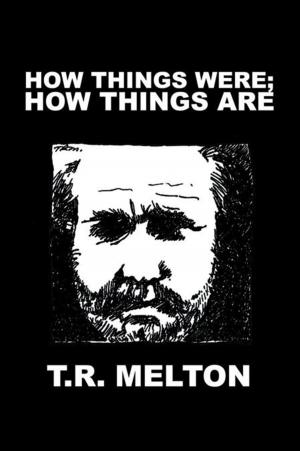The Tidepool and the Stars
The Ecological Basis of Steinbeck's Depression Novels
Fiction & Literature, Literary Theory & Criticism, American| Author: | Frederick Feied | ISBN: | 9781462819829 |
| Publisher: | Xlibris US | Publication: | May 18, 2001 |
| Imprint: | Xlibris US | Language: | English |
| Author: | Frederick Feied |
| ISBN: | 9781462819829 |
| Publisher: | Xlibris US |
| Publication: | May 18, 2001 |
| Imprint: | Xlibris US |
| Language: | English |
In the concluding chapter of Exiles Return Malcolm Cowley had the following comment to make on the 1930s: The 1930s were the Pentecostal years when it seemed that everyone had the gift of tongues and used it to prophesy the millennium. Among the host of writers who seemed to possess this gift, none appeared in the popular imagination to embody it more perfectly than John Steinbeck, whose novels on the marginal workers and dust bowl refugees appeared to take as their text the Biblical exhortation, Awake and sing, ye that dwell in dust.
Between 1936 and 1939 Steinbeck published In Dubious Battle, Of Mice and Men and The Grapes of Wraththree novels dealing with the struggles and sufferings of the homeless and the dispossessed. The theme had never seemed more appropriate, for the thirties was a time of vast discontents when millions of hungry and homeless persons roved ceaselessly over the land, looking for a place to take root. It was a time when the spirits of men were borne low and a sense of defeat hung over everyone. Everywhere one saw soup kitchens and Hoovervilles, bonus marchers and apple sellers, and through it all, like a heavy underlining of tragedy, the long shabby ranks of the unemployed waiting before barred doorways. Drought and flood on an unprecedented scale had deepened and made sharper the general sense of misery occasioned by the collapse of the economic system. Men watched the headlines anxiously as though awaiting an amnesty or moved with the angry crowds which gathered to hear any speaker who thought he could offer an answer.
To a nation suffering general economic collapse Steinbecks works seemed to come as a fitting literary echo to one of the most widely quoted expressions of the decade: I see one-third of a nation ill-housed, ill-clad, ill-nourished. These words were uttered by Franklin Delano Roosevelt, not in despair, as he told the nation, but in hope, and in the Pentecostal spirit of the times it would have seemed contrary, not to say contentious, to suggest that Steinbeck was neither with nor of his times or that his vision, which could break forth in utterance of almost Hebraic grandeur, was of an ultimately different order.
But the mantle of prophet or disciple of social salvation rests uneasily on John Steinbecks shoulders, for although each of these novels reveals an obvious concern with the plight of the exploited and underprivileged, the theme of social protest by no means exhausts their possibilities or comprehends the larger meanings implicit in the works.
Men gather sustenance where they may and take their moral support where they can find it. The thirties took from Steinbeck what the thirties needed, and men tended to see in his novels a scathing indictment of exploitation and a plea for social justice. That view, self-consistent as it may be on one level, fails to suggest the deeper significance of Steinbecks thought. For despite the apparent primacy of the social frame of reference, Steinbecks handling of his theme goes far beyond the limits of social interpretation. It is not traditional social philosophy, but biological science that dominates in his thought, and he sees his disinherited protagonists not as an economic by-product but as a biological excess.
Steinbecks reputation rests largely on the three depression novelsIn Dubious Battle, Of Mice and Men, and The Grapes of Wrath together with Sea of Cortez, a philosophical treatise and log of a biological expedition which he wrote in collaboration with his friend Ed Ricketts, the marine biologist. These works have proved a continuing source of puzzlement to critics and laymen alike and have been subjected to a number of widely differing interpretations which vary according to the level of culture on which the judgment is made or the period in which it is issued. Each period has seen his work in a different light, and if
In the concluding chapter of Exiles Return Malcolm Cowley had the following comment to make on the 1930s: The 1930s were the Pentecostal years when it seemed that everyone had the gift of tongues and used it to prophesy the millennium. Among the host of writers who seemed to possess this gift, none appeared in the popular imagination to embody it more perfectly than John Steinbeck, whose novels on the marginal workers and dust bowl refugees appeared to take as their text the Biblical exhortation, Awake and sing, ye that dwell in dust.
Between 1936 and 1939 Steinbeck published In Dubious Battle, Of Mice and Men and The Grapes of Wraththree novels dealing with the struggles and sufferings of the homeless and the dispossessed. The theme had never seemed more appropriate, for the thirties was a time of vast discontents when millions of hungry and homeless persons roved ceaselessly over the land, looking for a place to take root. It was a time when the spirits of men were borne low and a sense of defeat hung over everyone. Everywhere one saw soup kitchens and Hoovervilles, bonus marchers and apple sellers, and through it all, like a heavy underlining of tragedy, the long shabby ranks of the unemployed waiting before barred doorways. Drought and flood on an unprecedented scale had deepened and made sharper the general sense of misery occasioned by the collapse of the economic system. Men watched the headlines anxiously as though awaiting an amnesty or moved with the angry crowds which gathered to hear any speaker who thought he could offer an answer.
To a nation suffering general economic collapse Steinbecks works seemed to come as a fitting literary echo to one of the most widely quoted expressions of the decade: I see one-third of a nation ill-housed, ill-clad, ill-nourished. These words were uttered by Franklin Delano Roosevelt, not in despair, as he told the nation, but in hope, and in the Pentecostal spirit of the times it would have seemed contrary, not to say contentious, to suggest that Steinbeck was neither with nor of his times or that his vision, which could break forth in utterance of almost Hebraic grandeur, was of an ultimately different order.
But the mantle of prophet or disciple of social salvation rests uneasily on John Steinbecks shoulders, for although each of these novels reveals an obvious concern with the plight of the exploited and underprivileged, the theme of social protest by no means exhausts their possibilities or comprehends the larger meanings implicit in the works.
Men gather sustenance where they may and take their moral support where they can find it. The thirties took from Steinbeck what the thirties needed, and men tended to see in his novels a scathing indictment of exploitation and a plea for social justice. That view, self-consistent as it may be on one level, fails to suggest the deeper significance of Steinbecks thought. For despite the apparent primacy of the social frame of reference, Steinbecks handling of his theme goes far beyond the limits of social interpretation. It is not traditional social philosophy, but biological science that dominates in his thought, and he sees his disinherited protagonists not as an economic by-product but as a biological excess.
Steinbecks reputation rests largely on the three depression novelsIn Dubious Battle, Of Mice and Men, and The Grapes of Wrath together with Sea of Cortez, a philosophical treatise and log of a biological expedition which he wrote in collaboration with his friend Ed Ricketts, the marine biologist. These works have proved a continuing source of puzzlement to critics and laymen alike and have been subjected to a number of widely differing interpretations which vary according to the level of culture on which the judgment is made or the period in which it is issued. Each period has seen his work in a different light, and if















